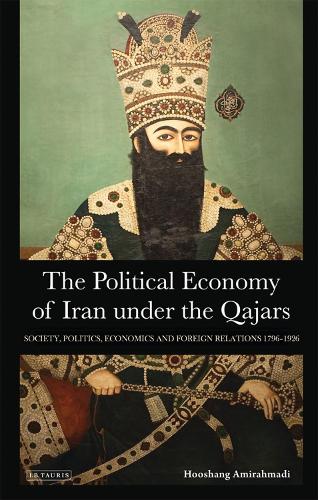
The Political Economy of Iran Under the Qajars: Society, Politics, Economics and Foreign Relations 1796-1926
(Hardback)
Publishing Details
The Political Economy of Iran Under the Qajars: Society, Politics, Economics and Foreign Relations 1796-1926
By (Author) Hooshang Amirahmadi
Bloomsbury Publishing PLC
I.B. Tauris
30th July 2012
United Kingdom
Classifications
General
Non Fiction
International relations
955.04
Physical Properties
Hardback
344
Width 156mm, Height 234mm
682g
Description
The political economy of Iran underwent the fundamental transition from feudalism to modernity from the early 19th to the 20th century: a period which was a vital watershed in Iran's historical development. This book provides a critical analysis of Iran's economic, social and political development and shows how the path to modernity, far from smooth, was hindered by both internal and international factors. These included a powerful monarchy with little interest in administrative and economic reform, a large aristocracy frequently holding vital provincial governorships and frustrating effective central government and a failure to create a modern civil service, military, banking, finance or communications - the essential infrastructure for economic development. Reformers were marginalised and business suffered. And the all-powerful ulema were a further brake on modernisation. On the international front, the rivalry of Britain and Russia compounded the problems: both acting to control Iran and to further their own interests. Hooshang Amirahmadi explores the roots of present-day challenges to modernisation and progress and, using a wealth of primary sources and original research, has produced a work which is invaluable for students of modern Iranian history, politics and Iran's political economy.
Author Bio
Hooshang Amirahmadi is a professor and former director of the Center for Middle Eastern Studies at Rutgers University. He holds a PhD from Cornell University and is the founder and president of the American Iranian Council. His publications include Revolution and Economic Transition: The Iranian Experience, three books in Farsi and numerous edited books and journal articles.
